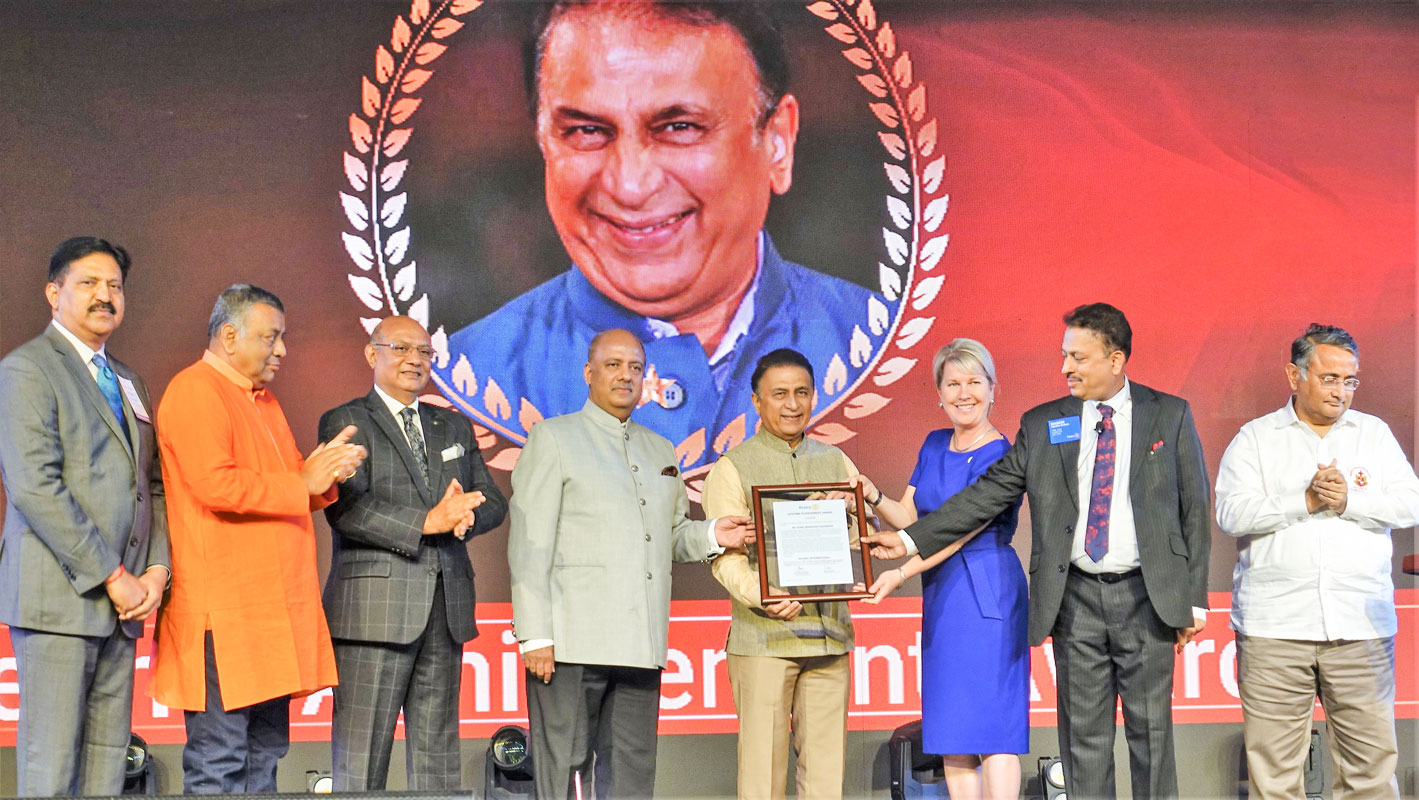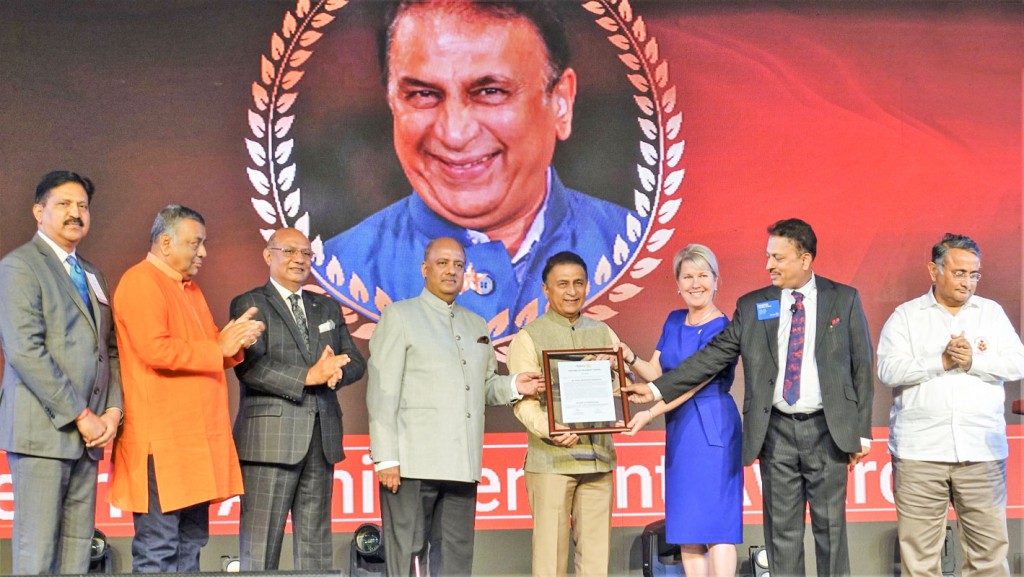Every human being needs a second chance in life; and more so a child, as the gift of life is really precious. And few could understand the importance of a second chance, as he could, as without a second chance, his career would not have been what it was, said cricketing legend Sunil Gavaskar, while addressing the zone institute Visakha Vista held in Visakhapatnam. A trustee of the Sri Sathya Sai Sanjeevani Hospitals, which operate free of cost on poor children with congenital heart diseases, Gavaskar signed an MoU with Rotary, through which Rotary has committed ₹5 crore for conducting 2,025 paediatric heart surgeries at these hospitals till 2025.


Gavaskar was conferred Rotary’s Lifetime Achievement Award, and he received it from RI director Mahesh Kotbagi in the presence of RI President Jennifer Jones and PRIP Shekhar Mehta. He was honoured for “being a sporting legend of our times who epitomised the elegance of the game of cricket on and off the field,” said the citation.
Elaborating on what it means to get a second chance, the cricketer said, “When I made my debut for India in a match with West Indies, I was batting only on 12, when I played a shot and the ball took the outside edge and went to second slip where the greatest of them all, the one and only Gary Sobers, was fielding. And it was, as we in cricketing circles call it, a dolly catch… a sitter, and he dropped it. He dropped it and gave me a second cricketing life. With that second life, I got the second opportunity to continue batting, and I got a half century, and kept my place in the team for the next Test match as well,” he told an audience which lapped up every word of his. Continued Gavaskar: “When again I was batting on 6, I flashed hard at a delivery from a fast bowler and the ball flew off from the edge of my bat again to Sir Garfield, and this time around it was really a hard catch. It bounced off his chest, before he could see it and again it fell to the earth, and I went on to get my first ever Test century.”
Thereafter, he managed to keep his “place in the team for the next 17 years till I decided I had enough of the game.”
The cricketer explained that he was an ardent devotee of Sri Sathya Baba of Puttaparthi and “apart from being his devotee, this cause resonated with me simply because seeing a child being given another chance at life is extraordinary.” Even more touching was watching the joy of parents when being told by doctors after the surgery that their child would now be healthy. About 99 per cent of the patients coming there were from financially-challenged families and mostly from villages and small cities. “Sometimes they don’t even have the money for a return ticket back home. They come to the hospitals totally bewildered; firstly, they are worried about the child, and then seeing so many people, so many buildings, cars, honking, etc, they are anxious and nervous. When one of our own is sick, we, the world travellers, while waiting for the doctors at the hospital, are so nervous… so just imagine the plight of these parents.”

So once the doctor tells them after the surgery that their child is now going to lead a normal, healthy and long life, “the change of expression on their faces, the relief from anxiety and worry, is something to see. I have seen it and I tell you it has given me more joy than scoring a double century for India.” The surgeries done at these hospitals have a success rate of almost 99.4 per cent; “these hospitals are saving just about every child who comes to them.”
Gavaskar then added: “This then is my third innings in life. I’ve had my first innings as a cricketer, second innings, which is still carrying on but tapering off, which is being, part administrator, part media, doing TV commentary, writing about the game. But this third innings which started a few years back is the most fulfilling, most rewarding.”
Thanking Rotary for helping this passionate cause he added: “Throughout my first innings, I was always looking for the partner with whom I could build the innings for my team, India. I’ve had several partners, almost 19, who opened the innings with me for India. Some were very good, some successful and some played only a couple of Test matches and fell by the wayside. But this partnership with Rotary is something which is going to last and last… together we will save thousands and thousands of children’s lives.”
He added there are four such hospitals now in India, one in Fiji, one in Colombo and many more on the anvil, and they will come up in the next few years. “The motto is simple, only dil, no bill!’
Earlier, welcoming the cricketing legend to the institute, convener Mahesh Kotbagi said, “Gavaskar is one of the two big heroes of my life, the other being Amitabh Bachchan, who could not be here.” He said when he had visited one of the Sanjeevani hospitals, he was struck by the fact that “this was one hospital where there was no billing counter, no insurance claim, nothing… everything is about passion and love.” Hence Rotary had decided to partner with these hospitals under its Gift of Life programme.
Pictures by Rasheeda Bhagat






